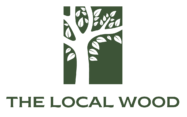Can You Put Wooden Chopping Boards in the Dishwasher?

As a kitchen enthusiast or home cook, you might have found yourself pondering this very question while staring at a wooden chopping board stacked high with the remains of your culinary creations: “Can I just toss this in the dishwasher?” It’s a question that taps into a broader discussion about the maintenance and care of our most essential kitchen tools. This comprehensive guide will walk you through the facts and provide evidence-based tips to keep your wooden chopping boards both hygienic and in top condition.
Understanding Wooden Chopping Boards
Wooden chopping boards are a staple in any serious cook’s kitchen. There are different types, each boasting distinct characteristics that cater to various cooking styles and personal preferences. From softwoods like pine to the hardwoods such as oak, cherry, and maple, wooden chopping boards offer a natural, durable, and sometimes stylish platform for the daily kitchen grind.
The Benefits of Wood
The advantages of wooden chopping boards are manifold. They are easier on knife blades than materials like glass or stone, leading to less frequent sharpening needs. Wood’s porous structure helps to absorb excess moisture, keeping the board dry, and limits the growth of bacteria. It’s also a renewable resource and, thoughtfully manufactured, poses a minimal environmental impact.
Dishwasher Basics
Let’s start with the basics: a dishwasher is a mechanical device that cleans dirty dishes by spraying hot water and detergent onto them. The combination of heat and agitation helps break down food particles and other soils, leaving you with sparkling clean tableware and utensils.
Materials Suitable for the Dishwasher
Generally, the dishwasher is safe for most cookware and utensils made of stainless steel, glass, porcelain, and some plastics. The key is to avoid materials prone to warping, discoloration, or damage under high heat or harsh detergents.
Pros and Cons of Dishwashing Wooden Chopping Boards
There’s a compelling case on both sides of the dishwasher debate when it comes to wooden chopping boards. Let’s break down the arguments to help you make an informed decision.
The Advantages of Dishwasher Cleaning
Dishwashers automate the cleaning process, saving time and elbow grease. The combination of hot water and detergent, along with sanitizing cycles, effectively eliminates harmful bacteria and food residues.
The Disadvantages and Risks
Unfortunately, the very aspects that make dishwashers effective at cleaning may pose a risk to wooden chopping boards. The excessive heat and prolonged exposure to water can cause wood to warp, crack, and splinter. Detergents can be abrasive and may strip away the oils that preserve the wood’s integrity.
Best Practices for Cleaning Wooden Chopping Boards
If you decide to forego the dishwasher for your wooden chopping boards, these best cleaning practices will maintain hygiene without sacrificing board quality.
The Handwashing Method
Use warm, soapy water and a sponge to handwash your chopping board after each use. This method provides a gentle yet thorough cleaning of the wood’s surface.
Natural Cleaning Solutions
For an eco-friendly and safe option, mix equal parts of water and white vinegar or hydrogen peroxide. Both substances are effective at sanitizing and neutralizing odors.
Proper Drying and Maintenance
After cleaning, wipe the board down and stand it upright to air dry. Regularly maintain the board’s surface by applying a food-safe mineral oil to keep it from drying out and cracking.
Alternative Cleaning Methods
For those who crave variety in their cleaning routines, consider these alternative methods for sanitizing and preserving your wooden chopping boards.
Sanitizing with Vinegar or Hydrogen Peroxide
A mixture of water and white vinegar or a spritz of hydrogen peroxide can serve as an effective, non-toxic way to kill bacteria and germs on your cutting board.
Using Baking Soda and Lemon
For odorous boards, sprinkle baking soda over the surface and scrub it with a halved lemon. The abrasive nature of baking soda and citric acid in the lemon can lift stubborn stains and neutralize smells.
Tips for Extending the Lifespan of Wooden Chopping Boards
Caring for your wooden chopping board is an investment in both your health and your culinary toolkit. To ensure a long lifespan, consider these proactive measures.
Seasoning and Oiling
Regularly season and oil your wooden chopping boards to create a protective barrier against moisture and microbes. This process also enhances the board’s natural beauty and color.
Avoiding Excessive Water Exposure
Be mindful of over-soaking your wooden chopping board, as prolonged exposure to water can lead to warping and cracking.
Regular Inspections and Maintenance
Favor a proactive “ounce of prevention” approach by frequent inspections and prompt maintenance. Smooth minor scratches before they become deep grooves and clean stains as soon as they appear.
Conclusion
When it comes to wooden chopping boards and dishwashers, it’s a debate with strong arguments on both sides. While a dishwasher can sanitize with ease and efficiency, for many, the risks to the chopping board’s integrity outweigh the convenience.
In this guide, we’ve gone through the process of understanding wooden chopping boards, the basics of dishwashing, and what it means for your beloved kitchen tool. We’ve also unpacked the benefits and drawbacks, and the potential for warping and drying out that a dishwasher presents.
In the end, the decision lies with you, the home cook. By following the best practices, alternative methods, and maintenance tips laid out in this post, you can confidently care for your wooden chopping boards and keep them in top-notch condition for years to come.
For those who still consider dishwashing their wooden chopping boards, a word of caution is advised: Of all the kitchen essentials, your chopping board is perhaps the most personal. Treat it as you would a cherished heirloom—thoughtfully, carefully, and with a little bit of love.
Remember, just as no two cooks are the same, no two kitchens are identical. What works for one may not work for all. Finding the right balance between convenience and care is the hallmark of a well-loved and well-used kitchen.
So, can you put wooden chopping boards in the dishwasher? Yes, but with tremendous caution and understanding the potential risks involved. In the grand symphony of culinary creation, your decision on how to care for your chopping board is one note—a single, significant beat in the ongoing, daily concert of flavors and experiences that define your journey in the culinary world.
